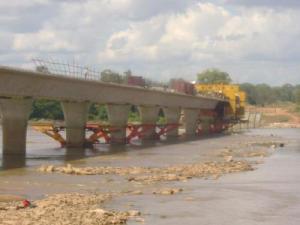 Only a week to go. A couple of World Cup stories:
Only a week to go. A couple of World Cup stories:
1. Oh dear. This is the last thing they needed. As if sinking a South Korean warship wasn’t enough to deal with, North Korea has just discovered that due to an administrative nightmare, their main striker will only be allowed to play as goalkeeper in the World Cup. Here’s what happened: All teams are required to submit the names for their squads of 23. Three of these players MUST be goalkeepers. North Korea thought they would be clever and send only two goalkeepers, listing an extra striker in the third goalkeeper slot. Only one hitch – they didn’t realise that the players listed as goalkeepers are prohibited from playing in the outfield. So Kim Myong-won, career striker, can only play goalkeeper at this year’s world cup. We’d love to be able to tell you how much North Korea will miss him, but we’ve got no idea whether he’s any good or not – the North Korean team turning up at this year’s world cup is pretty much a complete mystery to everybody (no one’s even sure what kit they’ll be wearing).
2. Robert Mugabe scattered himself – for the second time – with a little World Cup gold dust. After his photo-op with the trophy earlier this year, he somehow managed to persuade Brazil to play a friendly in Harare. An “undisclosed fee” changed hands; it usually takes about US$1 million to get Brazil to play anywhere. The Zim warriors were duly dispatched 3-0 by South America’s finest, but it proved a festive occasion with even Morgan Tsvangirai getting involved. Moments like this are what unity governments are all about. While Zimbabwe was a controversial choice, it is good to see Brazil actually playing some friendly matches in Africa – they have another one lined up against Tanzania. Brazil may never play in either of those countries again, so it really is a once in a lifetime opportunity for the fans. While they cheered, hotels and tourist agencies were less excited: despite promises to the contrary from the government, the World Cup has brought no extra tourists to Zimbabwe, making a mockery of the expensive refurbishment undertaken by many places to prepare for the event.
3. Just because it’s brilliant – this interactive World Cup chart will tell you everything you need to know about the upcoming matches. Let the games begin!


